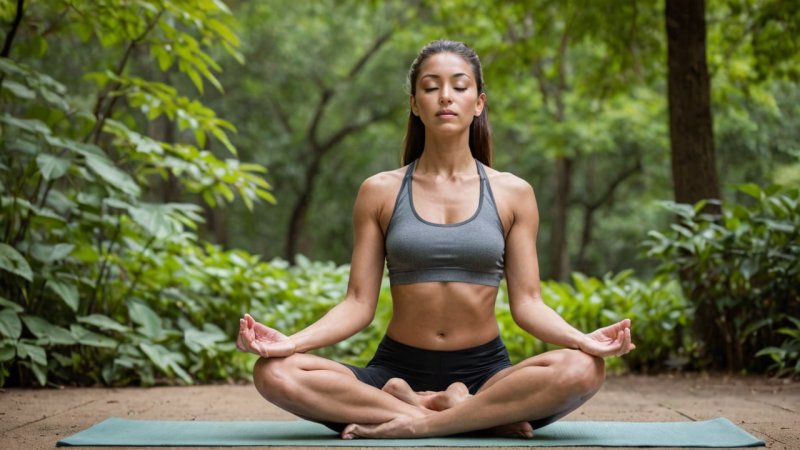Introduction
Mindfulness and meditation have gained significant attention in recent years, particularly in the realm of sports. These practices can help athletes enhance their performance, manage stress, and maintain focus during competitions. Below, we explore common questions surrounding mindfulness and meditation specifically for athletes.
What is mindfulness in the context of athletics?
Mindfulness is the practice of being fully present and engaged in the moment, without judgment. For athletes, this means focusing on their physical sensations, thoughts, and emotions during training and competition. It can help them stay calm and centered, leading to improved performance.
How can meditation improve athletic performance?
Meditation helps athletes develop mental clarity, enhance concentration, and reduce anxiety. By incorporating meditation into their training routine, athletes can improve their ability to focus during high-pressure situations, leading to better decision-making and overall performance.
What types of meditation are beneficial for athletes?
Several types of meditation can be beneficial for athletes, including:
- Guided meditation: Involves listening to a narrator who leads the practice, often focusing on visualization techniques.
- Mindfulness meditation: Focuses on becoming aware of thoughts and sensations without judgment.
- Breath awareness: Concentrates on the breath to enhance relaxation and focus.
How often should athletes practice mindfulness and meditation?
Frequency can vary based on individual preferences and schedules. However, incorporating mindfulness practices daily, even for just a few minutes, can lead to noticeable benefits. Many athletes find that practicing mindfulness in short sessions throughout the day helps maintain focus and reduces stress.
Can mindfulness help with injury recovery?
Yes, mindfulness and meditation can play a crucial role in injury recovery. By fostering a positive mindset and reducing stress, athletes can enhance their recovery process. Mindfulness practices can also help athletes cope with the emotional aspects of being sidelined due to injury.
What are some mindfulness techniques athletes can use?
Athletes can utilize various mindfulness techniques, such as:
- Body scan: Focus on different parts of the body and notice any sensations.
- Journaling: Write down thoughts and feelings related to training and performance.
- Visualization: Imagine successful performance to build confidence and reduce anxiety.
How does mindfulness relate to mental toughness in sports?
Mindfulness enhances mental toughness by teaching athletes to remain focused and composed under pressure. It helps them build resilience, allowing them to bounce back from setbacks and maintain a positive outlook during challenges.
Are there specific mindfulness exercises for athletes?
Yes, here are a few exercises that athletes can practice:
- Five senses exercise: Identify five things you can see, four you can feel, three you can hear, two you can smell, and one you can taste to ground yourself in the present moment.
- Focused breathing: Take deep breaths, focusing solely on the inhalation and exhalation to calm the mind.
- Mindful walking: Pay attention to each step, noticing the sensations in your feet and legs.
What are the long-term benefits of mindfulness for athletes?
Over time, consistent mindfulness practice can lead to improved emotional regulation, greater self-awareness, enhanced concentration, and reduced performance anxiety. These benefits contribute to an athlete’s overall mental health and well-being, ultimately supporting sustained athletic performance.
Conclusion
Incorporating mindfulness and meditation into an athlete's routine can yield numerous benefits, from improved performance to better mental health. By embracing these practices, athletes can enhance their focus, manage stress, and foster a positive mindset, enabling them to reach their athletic goals more effectively.






